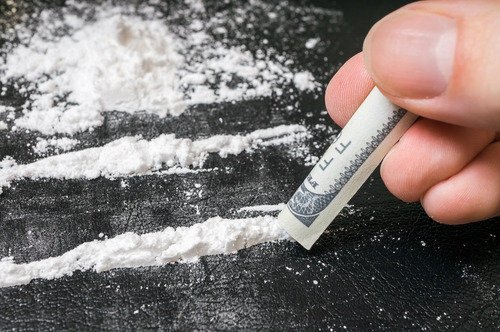Cocaine is one of the most commonly abused drugs in the US. Long-term use may result in serious addiction and even death. In fact, according to the National Institute on Drug Abuse, there were nearly 15,000 fatal cocaine overdoses in the US in 2017.
Read on to learn how to recognize the signs and symptoms of a cocaine overdose. Doing so may help you save a life one day, whether it’s yours or someone else’s.
How Much Cocaine Does It Take to Overdose?
Answering this question is tricky because there is no set amount. Research scientists can identify the lethal dosage for animals in a laboratory setting. However, that doesn’t really translate to real life.
There are a lot of factors that influence how much can cause an overdose, including:
- The age of the person and their metabolism.
- Any pre-existing heart conditions or lung problems.
- Their overall health at the time of the overdose.
- Drug tolerance and the severity of their addiction.
- If the drug was snorted, smoked (crack or freebase), or injected.
- The purity of the cocaine, especially if it’s cut with dangerous chemicals.
- Decreased liver function or disease.
- If the person recently lost a lot of weight.
Finally, it’s extremely common for people to mix drugs and alcohol. Remember, cocaine is a stimulant. If a person feels like they’ve taken too much, they may try to level off by taking sedatives, sleeping pills, cannabis or alcohol. In fact, mixing cocaine with alcohol is especially common. This increases the risk of overdose because people use more cocaine when they’re drinking.
What Does a Cocaine Overdose Feel Like?
It may seem obvious, but a cocaine overdose feels awful. Once the high disappears, you may experience the following symptoms:
- You may feel lightheaded and even black out.
- Severe nausea and vomiting may set in as your body tries to purge the drug.
- You’ll feel your heart pounding or have chest pain as your blood pressure becomes dangerously high.
- You may start sweating profusely and feel like you have a serious fever.
- Your skin may also feel cold and clammy.
- Severe anxiety, paranoia and confusion will replace the high and make you agitated.
- You’ll likely have uncontrollable tremors, especially in the hands, fingers and face.
- You may experience shortness of breath and difficulty breathing.
If you start to feel these symptoms, you have to call 911 right away. The sooner you do, the better your chance of surviving.
It’s also important to understand that a cocaine overdose can kill you in a number of different ways. These include heart attack, heart failure, respiratory failure, stroke or cerebral hemorrhage.
What Does a Cocaine Overdose Look Like?
We discussed how a cocaine overdose feels, but how do you tell if it’s happening to someone else? There are certain signs to look out for:
- The person’s heartbeat and breathing will become rapid or irregular.
- Excessive sweating and flushed skin because their core body temperature will become dangerously high.
- Their skin tone may also become bluish, especially under the fingernails or lips. In some cases, they may also appear pale with clammy skin.
- Pupils become extremely dilated, even when exposed to light (note that is the opposite of an opioid overdose).
- The person has lost control of their bowels or bladder.
- Their behavior changes drastically. Paranoia is the most common sign, but they may also become agitated, combative or even psychotic.
You may have noticed that some of the signs seem contradictory. For instance, the person overdosing may exhibit flushed, bluish or even pale skin. This is because a cocaine overdose may kill you in different ways and so the body reacts differently. In terms of skin color, just make sure that you call 911 if you notice any drastic or unusual changes. Recognizing these signs may save someone’s life!
What to Do If Someone is Overdosing Around You?
If a cocaine overdose is happening right in front of you, there are some things you can do to help. First and foremost: do not panic! You can’t help anyone if you lose your cool. You can also take the following steps:
- Call 911 right away. Be honest and tell them that someone is overdosing from cocaine.
- Try to keep the person overdosing conscious by asking them questions.
- Turn them on their side if you notice that they’re not breathing.
- Follow the 911 dispatcher’s instructions to give first aid.
- Apply a cold compress if their body temperature is too high.
- Protect their head. In case of seizure, protect them from hard or sharp objects and do not let them bite down or choke on their tongue.
- Administer CPR, if you know how to until the paramedics arrive.
You may be worried that if you or someone you know is overdosing on cocaine, you’ll face legal troubles when you call the authorities. While it’s true that using or possessing cocaine is illegal, first responders are more concerned with saving lives.
There are also Good Samaritan laws. These can keep the people overdosing and anyone with them safe from prosecution for minor drug offenses.
Currently, the District of Columbia and all 50 states have Good Samaritan laws. Specific provisions vary from state to state, including who is protected. However, it’s likely that anyone involved in the overdose will not face serious charges and will instead have to attend a drug diversion program or court-ordered rehab.
How to Treat a Cocaine Overdose
Unlike opioids, there is no specific antidote for cocaine. Instead, treating a cocaine overdose may require multiple steps. These have to be done by emergency medical personnel, so it’s critical to call 911 immediately.
The treatment usually consists of:
- Giving the patient benzodiazepines to treat the high core body temperature, chest pains, high blood pressure, and increased heart rate. Unfortunately, the dosages may be so high that the patient suffers breathing issues, so this must be done under the supervision of medical personnel.
- Physical cooling to bring the core body temperature down to a normal and safe level. This usually consists of cold compresses or water misting plus a fan.
- Nitroglycerin may be administered to lower blood pressure and combat chest pain. However, it’s not effective at lowering the heart rate and may even increase it.
- Alpha-blockers or calcium channel blockers may also be used, in some cases, to lower the blood pressure.
However, there is some disagreement as to whether certain treatments are safe. For instance, there is a long-running debate on using beta-blockers to treat the high blood pressure associated with cocaine overdose.
That means that the safest thing to do is get treatment before a cocaine overdose ever happens.
Get Help for Cocaine Addiction
Addiction is a serious disease. It’s best treated under the supervision of professionals in a setting that’s free of any judgment. If you or a loved one end up pushing it too far and overdosing, you may not survive the ordeal. Don’t take that chance.
Get help for a cocaine addiction from a quality treatment center. If you aren’t sure what treatment center to attend or aren’t familiar with any in your area, browse through our directory to find a quality facility near you.
Sources:
- Mechanics of acute cocaine toxicity
- An antidote for acute cocaine toxicity
- Drug overdose deaths involving cocaine and psychostimulants – US, 2003-2017
- Acute Cocaine Intoxication: Current Methods of Treatment
- Amphetamine & Cocaine Overdose
- National Institute on Drug Abuse Overdose Death Rates
- Good Samaritan Laws


